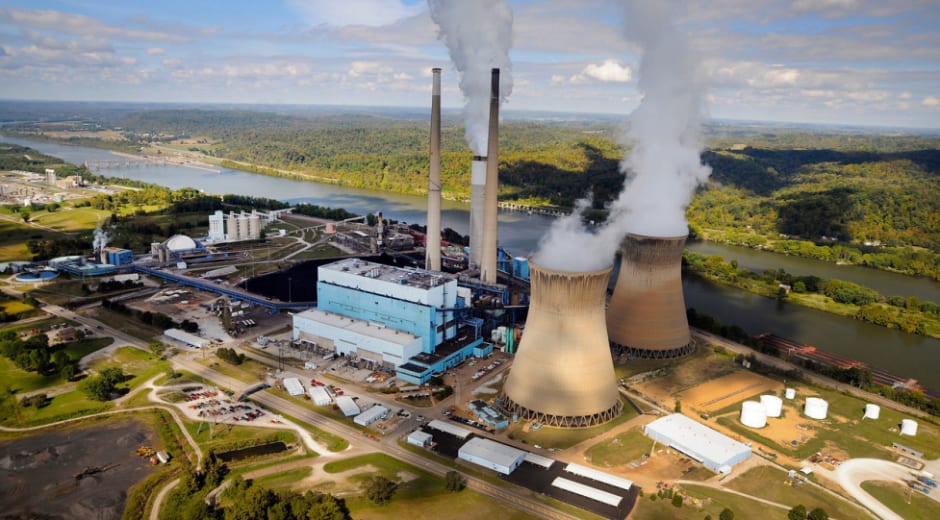All Eyes on SCOTUS: The environmental and constitutional concerns arising from West Virginia v. EPA

While President Biden met with world leaders at the COP26 Climate Change Summit in Glasgow, the Supreme Court announced on October 29, 2021 that it will hear West Virginia v. Environmental Protection Agency, a case which could have severe environmental and constitutional implications, as well as thwart any plans by the Biden administration to combat air pollution, climate change, and deforestation through the regulatory authority delegated to the EPA. In order for the United States to be taken seriously in any leadership role in the global climate crisis, it is essential that the Court preserve the EPA’s regulatory authority to regulate greenhouse emissions. If not for the environment, especially at a time when global carbon emissions are at an all-time high, then the Court should do so in order to preserve its own institutional legitimacy.
In 1970, Congress enacted the Clean Air Act which granted the federal government broad powers to require power plants to use the “best system of emission reduction.” This broad language gave rise to legal questions involving the extent to which the EPA can exercise its authority to regulate greenhouse emissions. In Massachusetts v. EPA, the Court held that the EPA has the authority to regulate greenhouse emissions which fall under the Clean Air Act’s definition of “air pollutants.”
In West Virginia v. EPA, the petitioners, which include red states, coal mine owners, and large energy companies, argue that the EPA lacks the power to authorize former President Obama’s progressive Clean Power Plan, which was never implemented in light of court challenges brought by state governments. The Biden administration said that it will not reinstate the Obama administration’s plan. Instead, the Biden administration proposed a more ambitious plan targeting power plant emissions. In addition to determining the extent to which the EPA can exercise its regulatory authority to fight air pollution and climate change, the decision in West Virginia v. EPA could alter the relationship between the executive and legislative branches, impacting the federal government’s ability to effectively regulate industry, set federal minimum wage requirements, and regulate access to healthcare and birth control. These issues impact the lives of millions of Americans and the Court’s role in potentially altering the way federal agencies shape American life will be highly scrutinized and raise concerns regarding its own legitimacy.
The nondelegation doctrine stresses that there are strict constitutional limits to the delegation of congressional power to agencies within the executive branch. Although the Court has strayed away from the nondelegation doctrine since early attempts to block New Deal legislation under President Franklin D. Roosevelt, the doctrine may be alive and well on the modern court. Justice Gorsuch’s dissenting opinion in Gundy v. United States appears to revisit nondelegation. Gorsuch wrote in Gundy, that in order for an agency to exercise its regulatory authority, the federal law in question must be “‘sufficiently definite and precise to enable Congress, the courts, and the public to ascertain’ whether Congress’s guidance has been followed.” Given the current makeup up the Court, it is likely that Justice Gorsuch is not alone in this view.
Furthermore, we have seen the Court previously intervene in cases like FDA v. Brown & Williamson to say that although federal agencies may have broad authority to regulate industries that make up a significant portion of the American economy, agencies cannot assert jurisdiction in areas where Congress has previously rejected proposals, such as tobacco. Since the language of the Clean Air Act is so broad, the question here is not whether Congress delegated power to the EPA to regulate greenhouse emissions, but rather, to what extent the EPA may do so.
Regardless of how you feel about the Biden administration, the EPA, or big government in general, the EPA and other federal agencies may very well be the only viable tool in the federal arsenal to fight air pollution and climate change at any considerable speed. One thing is certain; climate change waits for no one.
In an ideal world, the language of the 1970 Clean Air Act would have been written more precisely. Congress could amend the Clean Air Act to clearly delegate specific powers and limits to the EPA’s authority. However, given the current state of affairs in Congress and rampant political infighting both within and across party lines, this seems unlikely. The notion of reviving the nondelegation doctrine and leaving the most crucial regulatory issues of our time to Congress is nothing more than an ill-fated promise to a politically divided nation.
The federal government’s ability to combat industrial air pollution within the United States is not the only pressing concern among environmentalists and climate change activists. The revival of the nondelegation doctrine poses a threat to all federal agencies and their regulatory authority. If the Court rules to strip federal agencies of their regulatory authority surrounding hot-button political issues such as air pollution and climate change, the political fallout may call the legitimacy of the Court into question. Therefore, it would be judicially prudent for the Justices to avoid a ruling with such sweeping constitutional implications, in order to preserve the legitimacy and public perception of the Court as one of our oldest and most reliable institutions.

